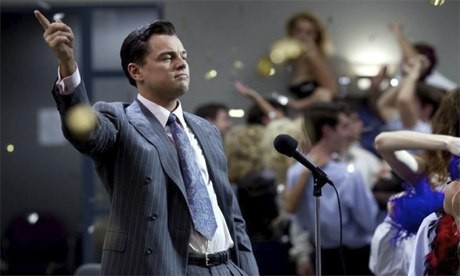Psychopaths on Wall Street
Post on: 16 Март, 2015 No Comment

Getting Ahead Through Misbehavior
The Issue: The financial services industry. particularly Wall Street. is a place where high achievers, especially in trading and investment banking. often exhibit the traits of psychopaths. That is the chilling assessment of several academic researchers quoted in the FT.com/Wealth magazine supplement to the 6/25/2011 Financial Times. as well as in a March 14, 2012 essay in the HBR Blog Network by Ronald Schouten, MD, JD. Accordingly, this looks like yet another application for psychology in finance .
The profile of such a person would include, for example, a mix of outward charm (at least when it suits his or her purposes), greed, selfishness, duplicity, mendacity, thrill-seeking, risk-loving, imperviousness to stress and disdain for rules. The fictional Gordon Gekko (as famously portrayed by actor Michael Douglas in the 1987 Oliver Stone film Wall Street and its 2010 sequel, Wall Street: Money Never Sleeps), best known for his greed is good speech, can be considered as a prototype.
According to Dr. Schouten, here is a partial checklist of personality traits exhibited by psychopaths:
- Outwardly charming and glib, but shallow emotionally
- Manipulative towards others
- Lack of regret over misbehavior or harming others
- Self-gratification always trumps ethics or conscience
- Little or no concern for others
- Trampling on others
- Refusal to take responsibility for mistakes
- Eagerness to blame others
- Chronic, blatant lying, even over insignificant matters
These same traits, needless to say, are also descriptive of highly successful figures in many other industries and fields of endeavor, including politics.
Case Study Number One: The article cited above mirrors the direct experience of a former controller and compliance officer in the high net worth marketing group at Merrill Lynch in the late 1990s and early 2000s. The high net worth specialists working in this group posed a constant challenge regarding the enforcement of corporate rules and regulations concerning travel related expenses, such as those mandating economy class airline tickets and capping the reimbursable costs of hotel rooms, meals and client entertainment. Several of them frequently pushed the envelope in terms of what were allowable expenditures. However, the most difficult member of this team for the controller to deal with was a former top investment banker who was relentless in his pursuit of miniscule expense reimbursements.
This HNW specialist was a very pious church elder who kept a copy of the Bible displayed prominently on his desk, and who read it daily. He also displayed radical mood and personality swings. Cool, meek and soft spoken one minute, he could fly into violent, screaming rages without warning, and often over trivial matters. It should be noted, moreover, that his explosions were directed only towards subordinates; senior management only saw his calmer face. His outbursts against his personal assistant put her in tears time and again, yet his immediate superior feared confronting him about this behavior, because of his close connections with executive management. Indeed, after suffering burnout as an investment banker, the head of the HNW marketing group was reluctantly forced to hire him by the senior executives with whom he was close.
Despite being paid around $600,000 per annum, this specialist would submit expense vouchers for his business related phone calls from home that cost only pennies each. Then he would hound the HNW marketing department’s controller incessantly about when he would get reimbursed. Meanwhile, that controller would be scolded by his own superiors in the finance organization for allowing such trivial expense reports to be processed; initially, they actually thought that these were some sort of silly joke in which the controller was complicit. They did not, however, have the nerve to confront the specialist directly.
On one occasion, the departmental controller got so annoyed with being hounded by the specialist over yet another reimbursement that would total less than one dollar that he slapped the loose change in his pocket on the specialist’s desk and walked out. Not used to being stood up to, the specialist’s jaw dropped.
Case Study Number Two: See the case study in our discussion of using employee surveys to your advantage. The key figure in this drama also displayed certain psychopathic traits.
Postscript: The FT.com/Wealth article suggests that, in the spirit of the so-called banking stress tests that they are now mandating and conducting, perhaps financial regulators also should encourage, if not require, psychological or even psychiatric screening for key personnel in financial firms, to uncover possible psychopathic traits. (See also a discussion of psychiatry and finance. from the standpoint of how psychiatric analysis can be applied to the study of how organizations function.)














